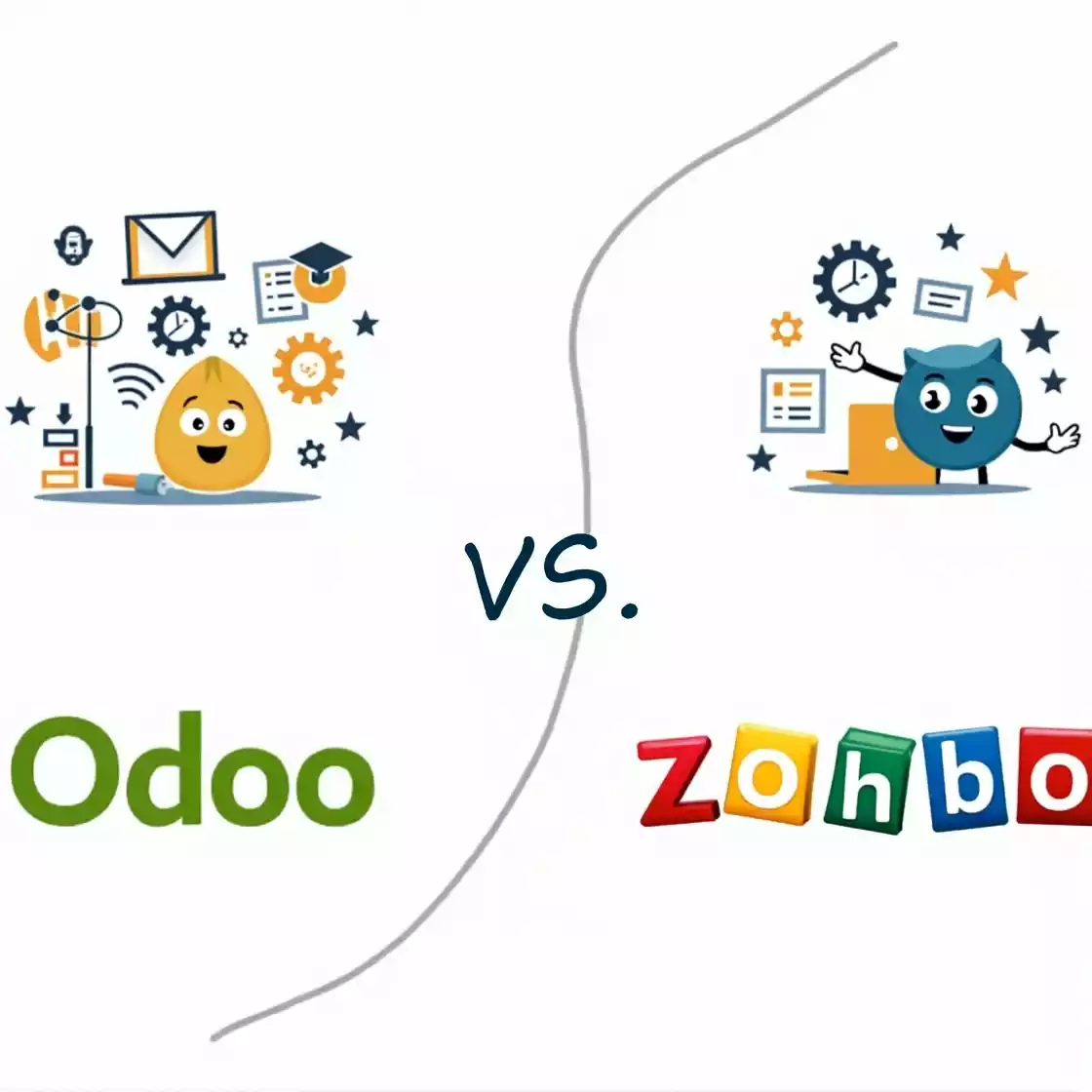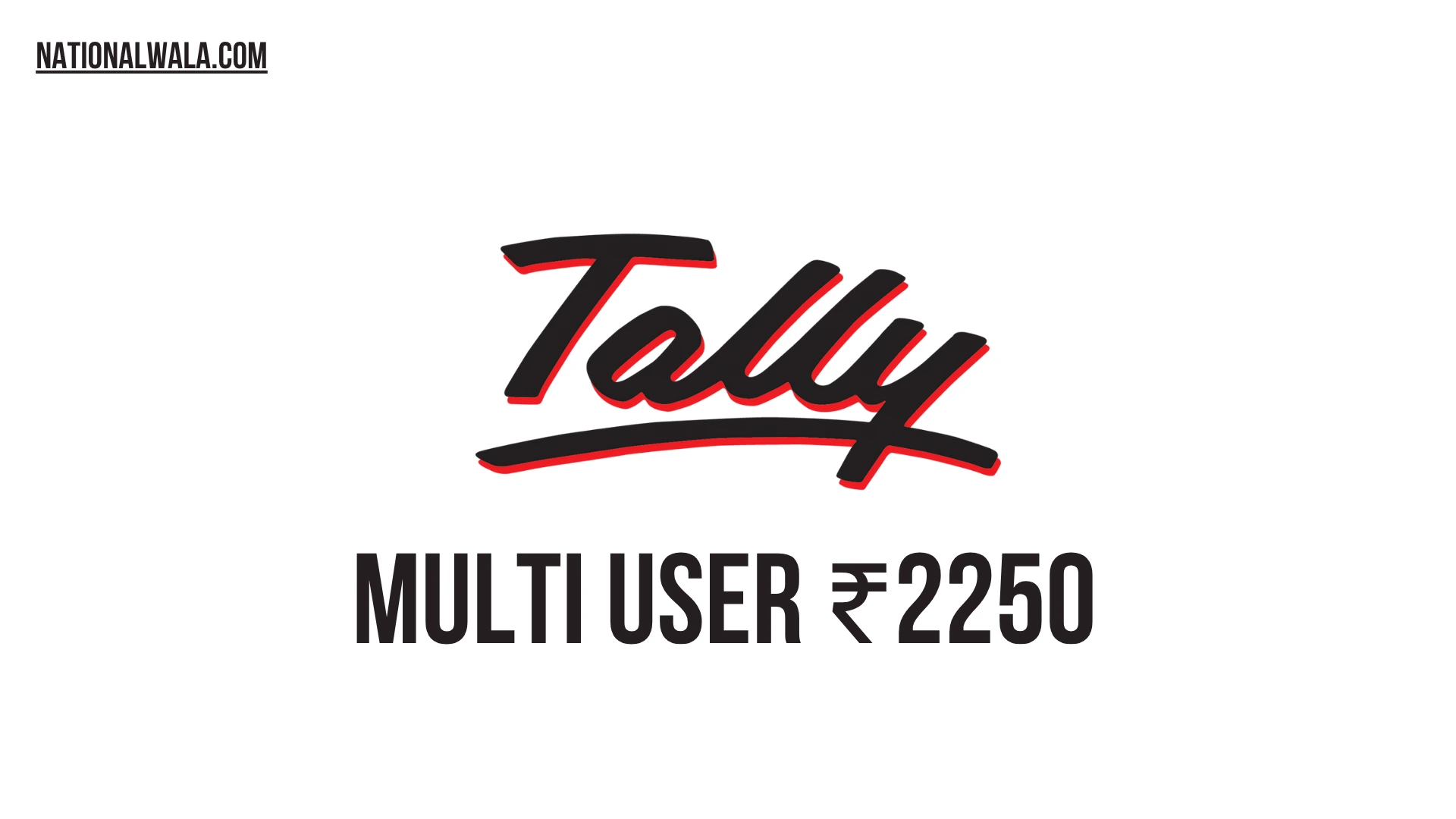Choosing the right ERP or business management software can transform your operations. Two popular options—Odoo and Zoho—offer powerful tools for streamlining business processes. However, they differ in approach, pricing, and features.
Let’s dive into a detailed comparison of Odoo vs Zoho to help you pick the right fit for your business.
Table of Contents
What is Odoo?
Odoo is an open-source ERP platform. It offers a suite of over 40 integrated business applications. These include accounting, CRM, inventory, sales, HR, and more.
Originally called OpenERP, Odoo is designed to grow with your business. Its modular structure allows you to add features as needed.
There are two main versions: Odoo Community (free) and Odoo Enterprise (paid).
What is Zoho?
Zoho is a cloud-based software suite. It includes more than 50 integrated applications. These cover CRM, accounting, HR, project management, email, and more.
Zoho targets small to medium-sized businesses. However, it also scales well for larger teams. Its popular apps include Zoho CRM, Zoho Books, and Zoho Projects.
Unlike Odoo, Zoho is not open-source.
User Interface and Experience
Odoo has a modern and responsive UI. It feels intuitive and smooth. The layout mimics that of mobile apps, making it familiar to most users.
Zoho also offers a clean interface. Navigation is simple. Each app has a consistent design, helping users adapt quickly.
While both offer great UX, Zoho’s interface is more beginner-friendly. Odoo is slightly more customizable.
Core Features Comparison
CRM
Odoo’s CRM module offers pipeline management, lead tracking, and email integration. It’s tightly linked with sales, marketing, and inventory.
Zoho CRM is one of the best in the industry. It includes lead scoring, sales automation, AI assistance (Zia), and advanced analytics.
Zoho wins in terms of CRM power and innovation.
Accounting
Odoo includes invoicing, payments, bank reconciliation, and tax management. The accounting app integrates smoothly with inventory and sales.
Zoho Books is Zoho’s accounting tool. It offers GST compliance, automatic bank feeds, and detailed financial reporting. It supports automation and multi-currency too.
For pure accounting needs, Zoho Books offers a more refined experience.
Project Management
Odoo lets you manage tasks with Kanban boards, Gantt charts, and time tracking. It supports forecasting and budgeting.
Zoho Projects offers milestones, dependencies, time logs, and resource management. It integrates well with Zoho Sprints and Zoho CRM.
Both tools are capable, but Zoho Projects provides better agility.
Inventory Management
Odoo’s inventory app is powerful. It includes multi-warehouse support, barcode scanning, and automated stock movements.
Zoho Inventory also supports multi-channel selling, order fulfillment, and tracking. It integrates with marketplaces like Amazon and Shopify.
Odoo’s inventory module is stronger for manufacturing and logistics. Zoho suits retail and e-commerce better.
Customization and Flexibility
Odoo is highly customizable. Developers can modify workflows, reports, and modules. Its open-source nature adds flexibility.
Zoho offers customization too. You can create custom fields, automate workflows, and build apps using Zoho Creator.
For deep and technical customization, Odoo is superior. For no-code or low-code needs, Zoho is easier.
Integrations and App Ecosystem
Odoo has a large app marketplace. You’ll find thousands of community-built and certified modules. These range from POS to eCommerce.
Zoho integrates seamlessly with its own apps and external services. It supports Google Workspace, Microsoft 365, Stripe, PayPal, and many more.
Zoho also provides Zoho Flow, a tool to automate app integrations.
In terms of variety and ease of integration, Zoho comes out ahead.
Deployment and Hosting
Odoo offers cloud, on-premise, and hybrid options. You can self-host the Community Edition or choose Odoo Online/Odoo.sh for the cloud.
Zoho is fully cloud-based. You don’t need to worry about servers or updates.
If you want hosting freedom, go with Odoo. For hassle-free cloud service, choose Zoho.
Mobile Experience
Odoo offers mobile apps for CRM, Inventory, and other key modules. They work well but may need more refinement.
Zoho provides dedicated mobile apps for nearly all its services. These apps are feature-rich and regularly updated.
When it comes to mobile, Zoho leads the race.
Pricing Comparison
Odoo Community Edition is free. The Enterprise Edition costs around $25/user/month, depending on the plan and hosting option.
Zoho offers various plans based on individual apps. For example:
- Zoho CRM starts at $14/user/month
- Zoho Books starts at $15/month
- Zoho One (all apps) starts at $37/user/month (billed annually)
Odoo is cost-effective for developers and teams who can manage hosting. Zoho is more affordable for plug-and-play users who want simplicity.
Scalability and Business Size
Odoo is ideal for businesses that plan to scale. Its modular structure supports expansion across industries and geographies.
Zoho also scales well. With Zoho One, teams can manage every business aspect from a single platform.
Both systems are scalable. However, Odoo is better suited for enterprises and industries with complex workflows.
Support and Community
Odoo has an active global community. It offers extensive documentation, forums, and partner support.
Zoho provides 24/5 and 24/7 support depending on your plan. Its help center is comprehensive and easy to navigate.
Zoho wins in customer service. Odoo provides flexibility through community and certified partners.
Security and Compliance
Odoo offers robust role-based access control and encryption. For cloud users, backups and SSL are included.
Zoho ensures high security with data encryption, GDPR compliance, and audit logs. It also offers data centers in multiple regions.
Both are secure, but Zoho adds more regulatory compliance tools.
Pros and Cons Summary
Odoo Pros:
- Open-source and highly customizable
- Modular and scalable
- Strong inventory and manufacturing modules
- Deployment flexibility
Odoo Cons:
- Requires technical skills
- Enterprise version can get expensive
- Steeper learning curve
Zoho Pros:
- User-friendly and cloud-based
- Rich CRM and accounting apps
- Great mobile support
- Extensive integration and automation
Zoho Cons:
- Not open-source
- Limited customization for complex workflows
- Feature overlap may confuse new users
Final Verdict: Odoo or Zoho?
Choose Odoo if:
- You want full control over your ERP system.
- Your business is scaling fast.
- You need deep customization and manufacturing tools.
Choose Zoho if:
- You prefer a ready-to-use cloud solution.
- Your team values mobile apps and integrations.
- You need excellent CRM and accounting tools.
There’s no universal winner. Both platforms are powerful in their own way. Your choice depends on business size, technical skills, and goals.
Conclusion
Both Odoo and Zoho are excellent business platforms. Odoo provides a more technical, flexible approach. Zoho offers convenience, polished apps, and strong CRM tools.
Try their demos. Explore their features. Choose the one that aligns best with your workflow and future growth.



